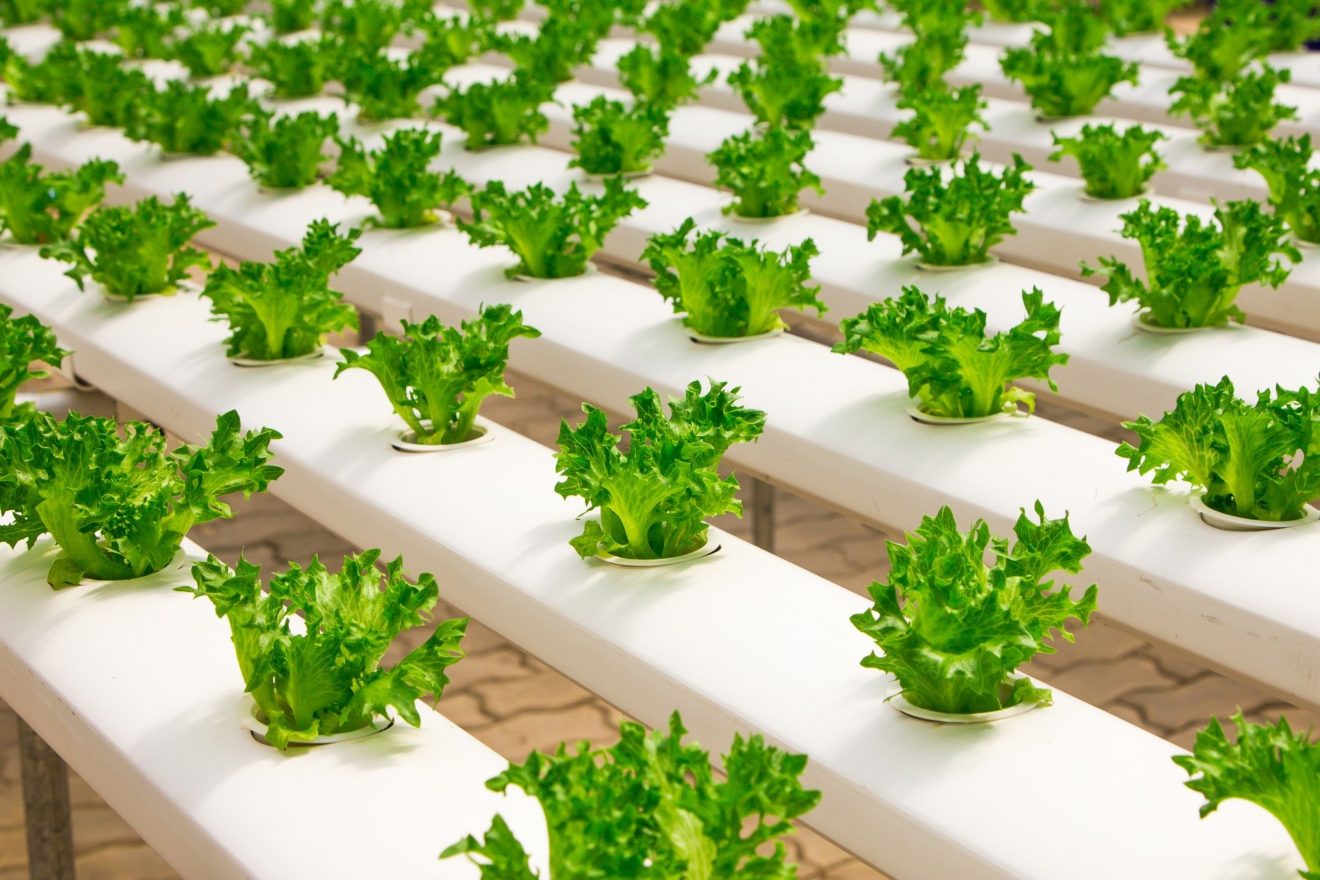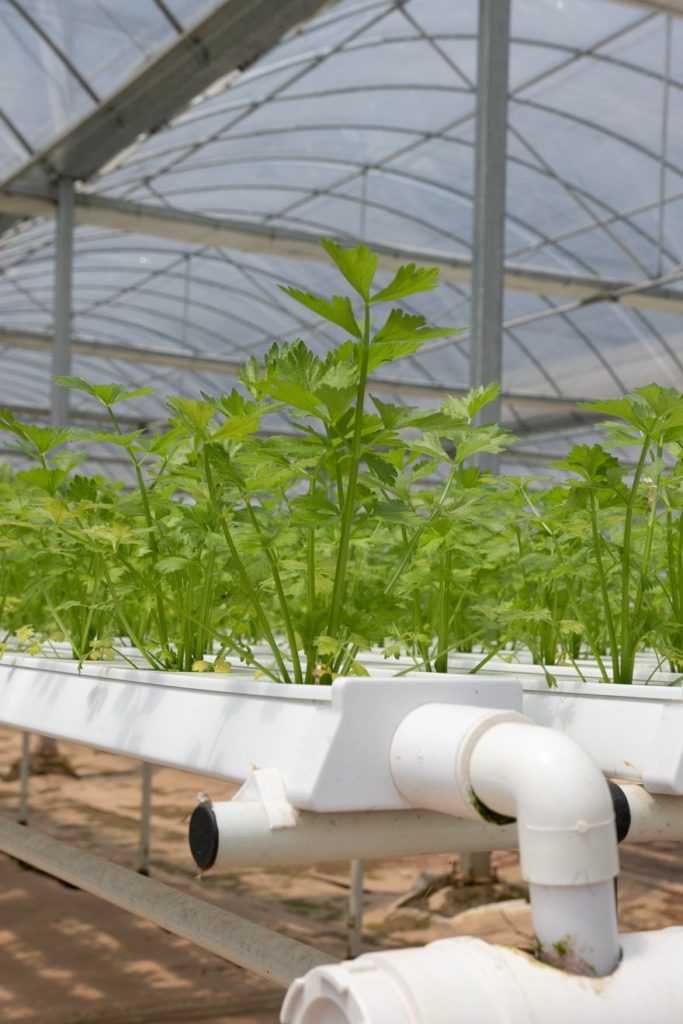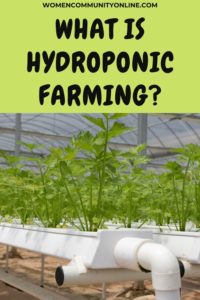What Is Hydroponic Farming?
We all have seen fruits and vegetables growing in the soil, but it is surprising to grow them in water, without soil. The hydroponic technique is a technique of growing plants in water under specific conditions and factors. Countries like America, India, Israel, Japan already practice this method of growing hydroponic crops. Now, its success has increased its demand globally. In this post, let’s talk about hydroponics farming, its advantages, disadvantages, and, also know how hydroponic system works.
What Is Hydroponic Farming?
Hydroponics is a horticulture technique or hydroculture cultivation of plants without soil. Due to increasing urbanization and population, there is a scarcity of land for plantation. In such a case, the hydroponic technique of farming can be very useful to grow plants and vegetables.

How Does Hydroponics Work?
In this technique, disease-free, healthy plants grow in an aqueous solvent without the use of soil. Plants grow in a coconut shell and fiber stacks by placing support of up to 2-4 feet height from the ground in a low-cost poly house, green, or structure. They grow in controlled conditions at about 80 to 85 percent humidity and 15 to 30 degrees temperature. In this arrangement, trays or pipes are installed, in which the roots of the plant, roots grow. These plants receive water, nutrients, and oxygen as required through the designated automatic system.
Water circulates throughout the system with the help of an installed motor. Nutrients are provided with the hydroponic farming nutrient solution or the smart fertilizer. Only a few drops of this Hydroponics nutrient are added once or twice a month in plants grown in the Hydroponics system. This Hydroponics nutrient solution contains the required amount of plant nutrients. It contains phosphorus, nitrogen, magnesium, chlorine, potash, calcium, sulfur, zinc, manganese, iron, boron, molybdenum, etc. This technique can be set up in your garden, house, and even flat.
Additionally, with this technique, you can grow up to two pounds of vegetables with two gallons of water. This also reduces the wastage of water and various organic inputs like fertilizer, biofertilizers, etc. The advantages Of hydroponic technique farming is effective for leafy vegetables.
Is Hydroponic Farming Profitable? Hydroponic Farming In India
The hydroponics farming method is being used for crop production in many western countries. In India, hydroponics farming technology is used in Jaipur, Delhi, Hyderabad, Bengaluru, Chennai, Jaipur, and Gujarat. It is beneficial in dry regions like Rajasthan where there are adverse climatic conditions for crop production, this technique can prove to be a boon in these areas.

Types Of Hydroponic Systems
There are 6 types of hydroponic systems among them, the deep water culture technique is popular amongst beginners as it is easy to set up and manage. Different hydroponic systems are as follows,
1. Wick System
Wick system in hydroponics is an efficient form of hydroponic techniques, that can operate without the need for motors, pumps, or transferring machines as they are self-watering.
2. Deep Water Culture
Deepwater culture is a hydroponic system in which floating boards on the nutrient solution are installed for germination. This system is beginners friendly, small and suitable for lightweight crops.
3. Ebb And Flow Hydroponic System
Ebb and Flow hydroponic techniques include a water-tight growing bed and pots that are installed in the stand. A timer is set that controls the water pumping cycle for water and nutrients supply.
4. Drip System Hydroponics
A drip hydroponic system uses a pump to supply water and nutrients regularly. It is a micro-irrigation system that requires time for installation. If not installed properly can affect seed fertility and waste resources.
5. Nutrient Film Technology
Nutrient film hydroponic technique contains a shallow stream of an aqueous solution containing all the diffused nutrients required for plant germination. It uses tubes or channels rather than trays for seed germination.
6. Aeroponic Systems
Aeroponic systems are a type of hydroponics in which the roots of the plant increase only in air and the roots are directly diffused in the nutrient mixture.
The Advantages Of Hydroponics Farming
The hydroponics technique has many advantages over the traditional method of growing plants and crops. With this technique, plants can be grown even in areas where there is a scarcity of water, in barren soil, and even in adverse climatic conditions. Besides, this technique can also solve the problem of the scarcity of fodder for animals. Apart from this some of the major benefits of hydroponics are given below.
- The main advantages of hydroponic farming are that if you have a shortage of land, that is, there is no garden or farm at your place or surrounding, and you still wish to grow fruits and vegetables, then you can grow vegetables or fruits as desired by hydroponic technique.
- The hydroponic technique of farming is cost-effective.
- In this technique, to supply essential nutrients to the plants, only a few drops of a hydroponic mineral solution requires to be added once or twice a month.
- Hydroponics technology can also reduce the cost of fertilizer and transportation.
- Only 20 percent of the water is enough for cultivation using hydroponics techniques as compared to traditional gardening.
- With hydroponic technology, various vegetables can grow within 6 to 8 weeks on a large scale in smaller areas like flats, gardens, etc.
- Hydroponic farming yields disease-free crops and reduce the use of pesticides and other chemical substances in cultivation.
- This technique will not only benefit our environment, but it will also be good for our health.
Fruits, Vegetables, and Herbs That Can Be Grown With Hydroponics
Almost all plants or vegetables can grow in a hydroponic system but its success will depend on hydroponic nutrients solution and the whole system. Here are some examples of fruits and vegetables that can be grown hydroponically.
Spinach
Strawberries
Bell Peppers
Herbs
Lettuce
Cilantro
Peppers
Tomatoes
Radishes
Cucumbers
Beans
Cabbage
Carrots
Leek
Melons
Onions
Cauliflower
Celery
Chard
Beets
Broccoli
Corn
Cucumber
Eggplant
Peas
Squash
Zucchini
Limitations Of Hydroponics Farming
Even though there are a lot of benefits of hydroponics there are many difficulties and challenges in its way for it to grow wider. The initial expenses required to set up this system are the biggest challenge of hydroponic technology. It costs more to put in place than the traditional method of cultivation. Unlike traditional methods, hydroponic farming requires growing a particular type of plant to be fruitful. Since water needs regular circulation in the system, this technology requires motors, pumps, tanks, pipe arrangements that need a constant power supply that increases the costs of running the system.
Liked This Post? Pin It Here

You May Also Like
- How To Grow Coriander At Home Without Soil
- 15 Best Perennial Flower Plants for your Garden
- 7 Indoor Cooling Plants for Summer
- Facts About The Feng Shui Lucky Bamboo Plant


